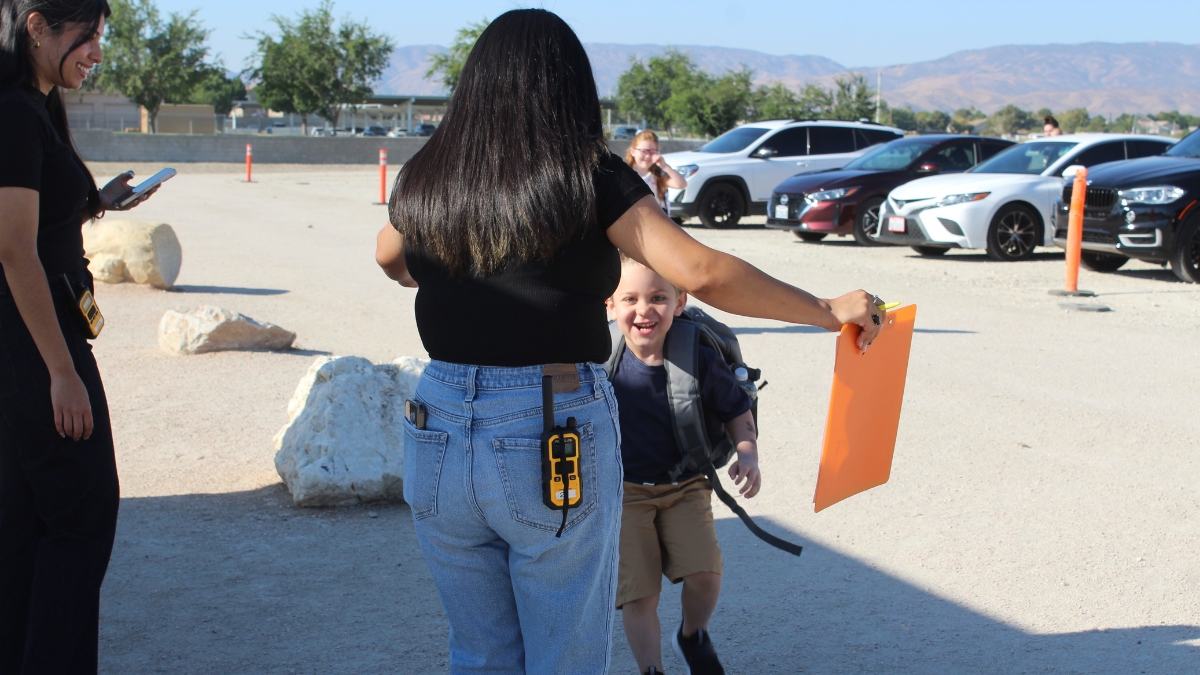iLEAD Antelope Valley Culture: Components of Social-Emotional Learning — Self-Control

By definition, social-emotional learning (SEL) helps kids tap into their emotions and how they affect what they do. So it should follow that an essential component of SEL is an understanding of self-control, or self-management.
As defined by the Collaborative for Academic, Social, and Emotional Learning (CASEL) — which has informed the iLEAD Antelope Valley’s approach to SEL — self-management is “the ability to successfully regulate one’s emotions, thoughts, and behaviors in different situations.” In essence, it’s the ability to both set and work toward personal and academic goals without significant deviation from your charted course.
Associated with self-control are many skills that, when developed, equip learners for academic success and overall life success.
- Impulse control: The ability to distract oneself from a desire, to not act on immediate impulses, and to delay actions for a period of time.
- Stress management: Having a solid foundation of self-awareness allows learners to determine when they are stressed so they can implement practiced strategies with more success.
- Self-discipline: Often simply called willpower, self-discipline allows one to ignore other stimuli in order to focus on the goal at hand and follow plans in spite of distractions.
- Goal setting: Research has shown that learners tend to achieve more success when working with their own realistic goals.
- Self-motivation: This is one that can be difficult to teach. Learners must develop their own internal push that will keep them moving toward goals.
- Organizational skills: Particularly in light of current distance learning, keeping one’s work area uncluttered and organized allows for more productive work time. Filtering information to be relevant to the topic at hand with a clear big picture can help learners stay on track. Keeping track of time and commitments can help them reach goals.
Success in work and life is strongly influenced by self-management. When learners take ownership of their work and create norms for themselves, they are more likely to meet their goals.
An important function of education is to foster self-reliance and independence. This is why we refer to our teachers as facilitators. They are not simply talking at students; they are facilitating the process of learning. They are empowering learners to take ownership of and responsibility for their work and success. If kids learn these principles early on, there is no doubt they will stay with them the rest of their lives.
Additionally, self-management plans can be instrumental in positively addressing behavioral issues. The intent of self-management strategies is to build a learner’s independence and ability to engage in self-monitoring, self-evaluation, and self-reinforcement. The true power of self-management is its emphasis on building that feeling of control over one’s own behavior. Teachers’ attempts to simply control a student’s behavior often decreases the power of a reinforcer, which in turn makes a self-management plan less efficient and problem behavior more likely to occur.
Everything is connected. When kids learn, understand, and adopt the principles of social-emotional learning, they’re not simply becoming better students — they are becoming the well-rounded leaders our world needs.
RECENT POSTS

Upcoming Events
iLEAD AV Studio Mon.-Fri., 11/24-28: Fall Break – School Closed Click here for the school year calendar. iLEAD AV Exploration (Home Study) Mon., 11/17: Beginning of LP 4 Thur., 11/20:… Read More

El Dorado SELPA Webinar: “Autism: Understanding Executive Functioning for Parents”
Does your child need help getting started on homework, need help with remembering to do what you have asked, or need help staying organized and prioritizing? You’re invited to El… Read More

The Valet Process at iLEAD AV Studio
In an effort to keep iLEAD AV Studio learners, families, and staff safe, please remember to follow these valet procedures: Drop-off starts at 8:30 AM. Learners will not be admitted… Read More


